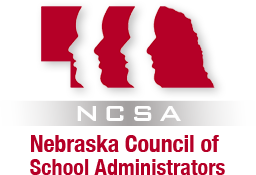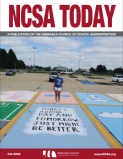Dr. Joan Carraher
1:1 Laptop initiatives continue to grow throughout Nebraska schools. There are many questions regarding their effectiveness in improving student learning, justifications for expenses, and the process to guide such an initiative.
The purpose of this case study was to explore students’ perceptions of academic self-efficacy and self-regulation while learning in a 1:1 district where students in grades 7 through 12 have 24/7 access to a school-issued laptop. Students in their first (8th grade) and third-year (10th grade) of learning in a 1:1 environment at a Nebraska school district participated in this study. Data was collected from an online survey, through focus-group interviews, and from an archived document of a district-administered survey conducted prior to this research study. Data from the online survey, the archived district survey, and results from the Nebraska State Accountability (NeSA) writing assessments were used to support the themes uncovered from the focus-group interviews.
Results indicated students do perceive an increase in academic self-efficacy and describe self-regulatory behaviors. Five themes were identified in the focus group interviews: improved organization, use of a variety of laptop production tools and internet programs and resources, challenges of learning in a 1:1 environment, increase in academic self-efficacy, and examples of self-regulation.
Students believe programs, tools and resources available on their laptop allowed them to become better organized. Students used a variety of laptop tools and internet programs and resources to enhance their learning. Challenges identified were internet connectivity issues, automatic updates and computer restarts, and the distractions of noneducational laptop uses. A belief that writing has become easier, their capacity to conduct research has increased, better note taking skills, and learning to use a computer and its associated programs, were examples students shared of increased academic self-efficacy since having 24/7 laptop access. Self-regulation behaviors identified by students included their use of online textbook tutorials, reviewing teacher podcasts, using programs to study, internet research of class concepts, and taking advantage of organizational tools.























